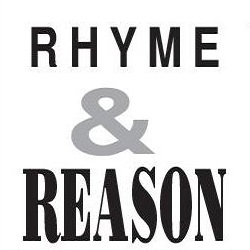THE UNHOLY ‘AUCTION’
11 Oct 2024 10:56:35

By KARTIK
LOKHANDE :
The turpitude starting with ‘auction’ of a position or a player leads to larger evils that may make one sell one’s heart and soul in due course of time. Consequently, the younger generation watching this unfold treats corruption as a ‘given’, or, even as a ‘new standard’ of societal, democratic, cultural functioning. Where will that degeneration lead the nation to?
THE news of ‘auction’
of the position of
Sarpanch in various
villages in
Gurdaspur, Sri
Muktsar Sahib, and Bathinda
districts in Punjab have triggered a row in the country
about the legal and ethical outcomes of such a step taken by
villagers there. But, there is
more to the story. Legitimate
and illegitimate ‘auctions’ are
becoming a norm in the country, which has a rich tradition
of democratic, social, and cultural values.
One may ask if ‘auctions’ are
really becoming a norm in
India? Though the word ‘auction’ may not be used in every
case, it is very much happening. For example, in legitimate
terms, the players are being
‘auctioned’ in cricket, kabaddi, and other leagues.The monuments and items of heritage
value are auctioned, instead of
preserving those. There were
reports that even the postings
to certain police stations or
cities/districts were put up for
unofficial ‘auctions’, and the
corrupt elements paid huge
money to secure those.
Obviously, they extracted
‘returns’ higher than the
‘investment’. Now, the position
of Sarpanch also have been
‘auctioned’. In all these ‘auctions’, the award goes to the
highest bidder.
But, then, there are other
auctions too, which are not
called so. Tenders are issued,
bids are called, and the contract for works/services are
awarded to the highest bidder
in many cases, and to the lowest bidder in certain cases,
depending upon the nature of
work or services. In both the
cases, there is no ethical or
moral code that comes into
operation if the said work is
done badly or requires repairs
within a short span of time
since completion or escalation
in cost due to delay. ‘Price’ gets
precedence over ‘value’, if one
tries to understand the subtle
difference in the concepts represented by these two words.
How has the society come to
such a passe?
Over the years,
the society has become more
money-minded. There may be
a lot of factors responsible. The
biggest one is corruption -- of
societal values. There was a
time when the Prime Minister
of that time had described corruption as a ‘global phenomenon’. Then, there was another
Prime Minister who had
famously said that the citizens
got only ‘15 paise of 1 rupee
sent by the Government’.
Gradually, these statements
were used to justify moral
decline of the Indian society,
to express helplessness in fight
against corruption, and also to
make it ‘legitimate’.
For instance, not long ago,
match-fixing was a vile concept
in the arena of sports because
it was linked to gambling and
betting rings. Today, gambling
and betting are still illegal. But,
it is open secret that gambling
and betting are operated under
the garb of ‘online gaming’,
which has assumed such proportions that companies in this
‘sector’ are sponsoring sports
teams! And, the players are
being ‘auctioned’ in a legal
manner as if they are not
human beings but commodities. For some, this may be too
idealistic view-point. But, for
an ordinary citizen who tries
to practice morality in individual, familial, and social conduct, such ‘auction’ is nothing
but a sugar-coated exercise in
mass familiarisation to the concept of immorality.
The latest incidents of ‘auction’ of the position of Sarpanch
in Punjab are expression of this
familiarisation. Someone willing to pay an amount between
Rs 30 lakh and Rs 2 crore for
the position of a Sarpanch in
a village in a State, will definitely
try to recover that ‘cost’ in
his/her term in that office.
How? The search for answer to
this question may bring more
clarity in the thought process
about ethical and moral dimensions of the evil familiarisation. And, as the wise men of
yore said, an evil does not come
alone; it brings with it a bouquet of other evils. The turpitude starting with ‘auction’ of
a position or a player leads to
larger evils that may make one
sell one’s heart and soul in due
course of time. Consequently,
the younger generation watching this unfold treats corruption as a ‘given’, or, even as a
‘new standard’ of societal, democratic, cultural functioning.
Where will that degeneration
lead the nation to?
Sadly, and unfortunately,
only a handful few appear to
be bothered about this discomforting question. Rather,
the tendency to make profits
without any ethical justification
is on the rise. This is reflected
in the concept of ‘surge pricing’ or ‘dynamic pricing’ of air
tickets, railway tickets, bus tickets, and even cinema tickets.
If most people at most places
try to put price tags to everything, it is bound to spell a
doom for the society as it
increases only the want for
money -- by hook or by crook.
In the process, people put price
tags on morality.
Moreover, such auctions or
sell-outs make a serious compromise with the sense of commitment to society, family,
nation, humanity. For, personal
gains are placed above collective welfare. This attitude poses a grave danger to the security of the nation.
The compromised individuals do not
mind, then, in selling secrets
to the enemy just for a few
bucks. This also leads to creating hurdles in the way of realising even the noblest of visions
for development. India, which
is emerging as a global leader
in various arenas, cannot afford to be led on to that path. Hence,
in the long-term national and
self interest, the element of
uncouth (not morally correct
and legitimate) profiteering
needs to be fought by one and
all. For that to happen, sense
of duty should prevail over the
sense of personal greed.